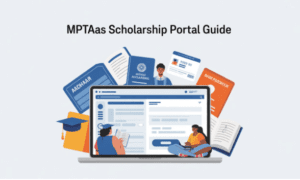Introduction:
In the digital age, technology has revolutionized the way we learn, and educational institutions worldwide are embracing the power of e-learning platforms to enhance their teaching methodologies. Among these platforms, Blackboard DCCCD stands out as a leading Learning Management System (LMS) adopted by the Dallas County Community College District (DCCCD). In this article, we explore the features, benefits, and impact of Blackboard DCCCD on education, as well as the challenges it faces and solutions to overcome them.
Features and Functionalities:
Blackboard DCCCD serves as a versatile and user-friendly LMS, empowering educators with a wide range of features and tools. Instructors can effortlessly manage their courses, upload course materials, create assignments, and administer quizzes within the platform. The system facilitates interactive discussions and announcements, enabling seamless communication between students and teachers. Additionally, the built-in gradebook and assessment tools allow instructors to track student progress, provide feedback, and ensure efficient grading.
Moreover, Blackboard DCCCD offers robust communication tools, including email and messaging features, as well as collaborative spaces for group work. The platform’s mobile accessibility ensures that students can access their courses anytime, anywhere, providing flexibility for both traditional and online learning environments. Its intuitive interface further enhances the overall user experience, making it suitable for students and instructors of all tech proficiencies.
Benefits and Impact on Education:
Blackboard DCCCD has revolutionized the educational landscape, offering a myriad of benefits to students and educators alike. With 24/7 access to course materials, students can learn at their own pace and revisit resources as needed. Engaging multimedia content, such as videos and interactive presentations, enriches the learning experience, fostering better understanding and retention of complex concepts.
The platform facilitates improved student-teacher interaction, breaking down the barriers of traditional classroom settings. Through email and messaging features, instructors can provide timely responses to student inquiries, promoting active engagement and a sense of personalized learning. Additionally, Blackboard DCCCD accommodates online and hybrid learning environments, ensuring that students have easy access to resources and assignments, promoting greater participation and success.
Administratively, the platform streamlines grading and data management, freeing up valuable time for instructors to focus on teaching. Furthermore, Blackboard DCCCD serves as a centralized hub for course administration, simplifying coordination and communication among various stakeholders within the DCCCD community.
Challenges and Solutions:
Despite its many benefits, the adoption and effective use of Blackboard DCCCD also present challenges. One of the primary challenges is providing technical support and training for both faculty and students. To overcome this, DCCCD can offer comprehensive training programs and resources to ensure that all users can maximize the platform’s potential effectively.
Ensuring accessibility and accommodations for all learners is another crucial aspect. DCCCD should prioritize creating an inclusive environment, ensuring that the platform complies with accessibility standards, making it accessible to students with disabilities.
Security and privacy concerns are also significant challenges to address. DCCCD must implement robust security measures to safeguard student data and ensure the privacy of its users.



































